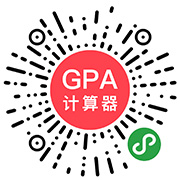话题分类
人物
1. Someone you would like to spend time with
2. An old person you respect
3. a person who is good at his/her job
4. A school friend
5. a teenager
6. a family you are familiar with (not your own)
7. A person you helped
8. a well-known person
地点
1. A tourist attraction
2. Workplace
3. a place with a lot of water
4. a city you visited
5. Cafe or restaurant
6. a place for shopping
7. a garden you’ve been to
物品
1. A book you recently read
2. A game (not sport) you played when you were a child
3. A photo
4. A good law in China
5. Some interesting news
6. A special gift you gave to another person
7. An organization
8. A show/performance you watched
9. Something that you don‘t know but would like to learn
10. A white lie
11. an important letter that you received
12. TV program
13. second foreign language
14. a website
15. handicraft you made
16. holiday postcard or email you received and that you liked
17. a film you watched recently
18. a magazine you like to read
19. an interesting animal
20. an electrical appliance that is useful to you
事件
1. an environmental problem in a place that you’ve been to
2. family event (birthday party or wedding)
3. A recent change in your life
4. A sport (physical activity) you played when you were a child
5. some good advice you received
6. occasion when you were late
7. project or homework assignment
8. an enjoyable event
9. a time you helped someone
10. a visitor to you home (how you entertained him/her)
第二部分话题和第三部分问题
A book you recently read
什么书
什么时候读的
为什么读
喜欢的和不喜欢的部分
Part 3
小孩应该读书还是看电视?
What kind of books do children like reading?
小孩读书的好处?
家长应该怎样鼓励小孩多读书?
Do you think people‘s reading habits have changed at all in the past few decades?
A game (not sport) you played when you were a child
什么游戏
游戏的举行地点
跟谁一起做游戏
最后描述一下这个游戏的特点
Part 3
Do children prefer to spend time with other children or with adults?
现在学校里学生们做的活动跟以前有什么不同?
Do you think it’s necessary for children to have after-school activities (= extra-curricular activities)?
体育锻炼对学生的精神方面有好处吗?
政府应该为人们组织一些休闲活动吗?
大人和小孩游戏之间的区别?
what‘s your opinion about the entertainment choices that children today have?
A photo (对你产生影响的照片)
在哪里见到的?
是什么样的?
为什么喜欢它?
它对你产生了什么影响?
描述一个你收到的photograph
它是什么样子的
什么时候给你的
为什么给你
你有多喜欢或者多不喜欢这张照片?
Part 3
为什么人们要照相?
你觉得在newspaper里的照片得到了有效的应用?
你认为照片对我们未来的生活有什么影响?
How has modern science and technology changed photography?
Do many Chinese people visit photograph exhibitions?
A good law in China
什么法律?
怎么知道的?
谁受益?
and explain its influences
Part 3
How do people in your country feel about the police?
Which job would most people prefer - to be a policeman/woman or a lawyer? (Why?)
What do you think is the importance of having a system of laws?
How successful do you think the laws are in your country? (successful in achieving the aim of the laws)
Some interesting news
什么时间?
从哪儿看到的?
新闻内容?
and explain how (or why) this story was interesting to you.
Part 3
Do people in China like reading the newspaper (= newspapers)?
Do people in China prefer to read about local news, national news or international news?
Do many people get their news from the internet?
How are modern news media and the old forms of news media different? (Compare them)
Would you say the quality of news reporting is the same on TV, in newspapers and on the internet? (Compare them)
How do you think the future will develop - do you think people will more and more use the internet for getting their news or will they continue to read newspapers? (Compare them)
How do you think a newspaper could increase its readership?
What personal qualities (and skills) do you think a journalist needs to have?
How do you think journalist (or, reporters) can (or do) influence people?
A gift you gave to another person
what the gift was
who you gave it to
why you chose this particular gift
and explain whether this person liked this present or not.
Part 3
On what occasions do people give gifts to others?
When (at what times of the year) do children receive presents in China?
What kinds of gifts do children in China usually get?
Do you think toys have any educational value?
A tourist attraction
Describe a tourist site that you recently visited.
where you went
what you did there
who you went with
and explain what was special about this place.
Part 3
在中国有多少种旅游形式?
你更喜欢哪一种?
你认为这种旅游形式可以给人们带来什么?
Would you like to live or study at a popular tourist destination?
What are the good and bad effects of tourism for a country?
Do you think it is necessary to take steps to protect tourist sites from being damaged by tourists?
A person you helped
帮助了谁
帮助他干了什么
帮助别人的感觉
and explain how this person benefited from your help.
Part 3
邻居之间的互相帮助
现在的人是不是不像以前那样乐于助人
父母如何教育子女去帮助别人
Are there any non-government organizations in China that help people?
What kind of people need help in China?
Do you think the government should help these people?
An organisation
Describe an organization (such as a company, a factory, a government organization or a student organization at school).
what it is
how you know about this organization
what kind of people work there
and explain what this organization does (= the purpose of this organization).
Part 3
What would you prefer to work in, a big organization or a small one?
Do you think the size of an organization can give that organization any advantages?
A show/performance you watched
什么表演?
什么时间、地点?
跟谁看的?
怎么感觉这个表演的?
Part 3
看演出和参观艺术对人有何益处
有什么类型的艺术
对人有何影响
What is the value of children learning to perform, such as learning to dance?
Are traditional art forms performed very much in China? (Give examples)
Something that you don’t know but would like to learn.
what it is you would like to learn
why you want to learn this
how you would learn it (or, how you would start to learn this)
and explain what difficulties you think you might have learning this.
Part 3
What practical skills do children learn at school in China?
Do you think children should learn some practical skills at school?
Do you think it’s useful for old people to attend classes to further their education?
Someone you would like to spend time with
是谁?
what personal characteristics he or she has that you like
一起做什么
为什么喜欢跟这个人在一起
Part 3
What kind of people do you like to be friends with?
What kind of people don‘t you like to be with?
Compare the things you do with your family with the things you do with your friends.
Do you think people can make real friendships on the internet?
Compare the friendships that people have at work with the friendships people have at school.
An old person you respect
是谁?
怎么认识的?
怎么样一个人?
为什么尊敬他/她?
Part 3
Who do old people today live longer than in the past?
作老人的好处
有哪些工作适合老人而不是年轻人?
Workplace
where this place is
what facilities it has
who you work or study with
and explain how you feel about this place.
Part 3
What facilities do you think a good school should have?
In general, what do you think are the factors that influence a person’s working (or studying) conditions?
Do you prefer to study at school or at home?
In the future, what changes do you think we will see in schools?
Do you think being a housewife should be considered to be ‘work’?
an environmental problem in a place that you’ve been to
what this problem is
what (you think) the causes of the problem are
how this problem affects people (or you)
and explain how you think this problem could be solved.
Part 3
What are the different kinds of environmental problems that exist right now?
What do you think is the most serious environmental problem in China?
Do you think it is the government‘s responsibility to solve environmental problems or is it the responsibility of each individual?
What do you think China’s environment will be like in the future (e.g., 20 or 50 years in the future)?
Do young people & older people have the same attitudes towards waste disposal?
Do you think that advertising leads to the production of more garbage in society?
An important letter that you received.
who wrote it
when you received it
what the letter was about
and explain why it was important.









 大马U.S.News排名
大马U.S.News排名 2022大马QS排名
2022大马QS排名 马来西亚QS亚洲排名
马来西亚QS亚洲排名 高考后留学美国
高考后留学美国






 香港大学
香港大学 香港中文大学
香港中文大学 香港科技大学
香港科技大学 香港理工大学
香港理工大学 香港城市大学
香港城市大学 香港浸会大学
香港浸会大学

